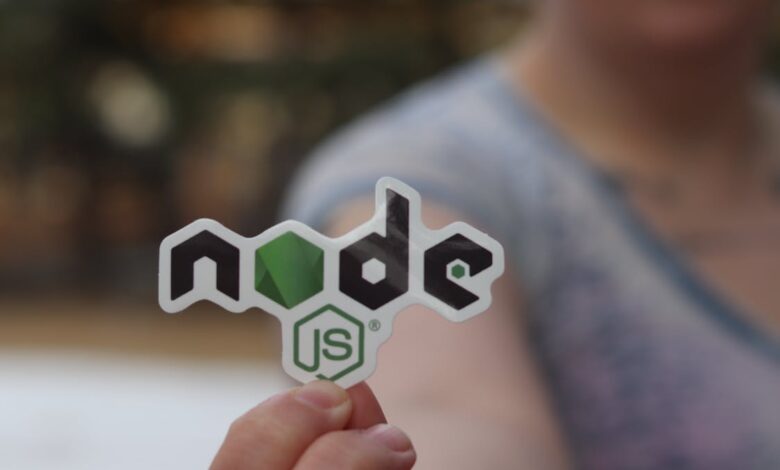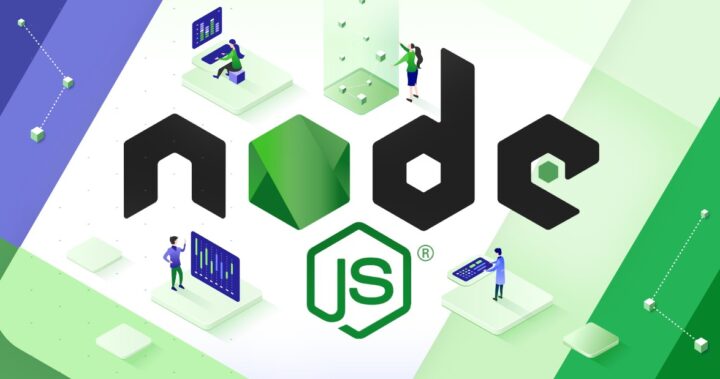
Node.js is a popular JavaScript runtime environment. The JS creation supports the business by boosting corporate apps with high speed and great performance. The solution is widely chosen by startups and enterprises, who benefit from its value in their web app builds. Including it in their stack allows for smoothly handling multiple requests, simplifying the development process, and easy scaling.
The open-source, cross-platform environment introduced in 2009 is an already established, stable solution, appreciated by web developers. As of 2024, Node.js is alive and kicking, remaining in high demand and offering an array of benefits to companies using it in their builds.
Who uses Node.js?

A solid social proof never hurt anybody. According to the 2024 Stack Overflow survey, Node.js is the 6th most popular technology among professional developers. The runtime environment is used by over 36% of respondents of the acclaimed research.
Global companies successfully include Node.js in their digital products used daily by millions of users. Here is a list of some well-known enterprises benefiting from this JavaScript technology:
- Trello
- Yahoo
- Uber
- Walmart
- Capital One
- PayPal
- Groupon
- Netflix
- NASA
- eBay
So, why exactly do these giants choose Node.js as their preferred runtime environment? Is it only the awareness that JavaScript is currently the go-to solution for dynamic websites creation? Or is it the desire to utilize JS in both front- and back-end development?
What makes Node.js a suitable choice for efficient web app development?

Simplicity
Node.js works both on the server and client-side, meaning less code and fewer files necessary to keep the architecture working, compared to using different technologies for each side. From the developers’ point of view, learning the environment is relatively easy thanks to its gentle learning curve.
V8 engine
Node.js uses Google’s Chrome V8 JavaScript engine to execute JS code quickly. It’s powerful, browser-agnostic, and enables fast server-side scripting. The engine is constantly evolving for ongoing improvement in applications’ speed, running not only on Windows, Linux, and Mac, but several other systems equally good.
Lightweight
The footsteps of Node.js are light and placed with consideration, if we can put it in a slightly poetic way. Technically what makes the environment lightweight is the asynchronous event-driven input-output model, thanks to which most functions in Node don’t directly perform I/O, making the build light.
Time-saving
Pieces of code can be reused and shared between front and back–end sides, which shortens the development time. A key to saving time with Node.js is the Node Package Manager (npm). With npm, the biggest collection of open-source libraries, Node.js developers can use the pre-made elements. Reusing suitable and tested code from previous builds facilitates the cost-efficient development of steady and robust applications.
Scalability
The JS creation handles a huge amount of high-throughput connections simultaneously. Node.js efficiently balances loads and processes 1000 requests per second without getting winded. The environment helps to proof the app against the dynamic increases in traffic, efficiently serving incoming requests and omitting downtimes.
Thriving community
The global Node.js fellowship is one of the largest and most active communities among open-source technologies. There are loads of libraries and other useful resources available, constantly developed for other users to benefit from. Contributors upload valuable content to support other developers in daily programming. This way, the outreach within the Node.js project is steadily improved.
MVP development
This point may not be an advantage per se, but rather a brief summary of the above-listed factors. There are reasons why companies at the very start of their business path choose Node.js to build their products. It’s versatile, allows to keep things simple (development, testing, deployment), and shortens the time-to-market, which is priceless when fitting the niche with a new product or service.
Is Node.js a miracle solution for web app development?

No. Is Node.js a great runtime environment, allowing for building fast, reliable, and safe applications? Definitely yes. It was designed with app scalability and performance optimization in mind.
Node.js is great for:
- real-time apps (e.g. chatbots) – thanks to its asynchronous, single-threaded nature
- data streaming services – able to efficiently handle extensive data loads
- Internet of Things apps – easily integrates with IoT protocols, contributing to data protection by fostering secure authentication, and facilitating API creation
- browser-based games – serves as a suitable implementation language for games with heavy physics-based graphics
- cross-platform desktop apps – cooperates well with web browser shells
- microservices – event-driven, fast, scalable, and easy to maintain
- social media apps – handles a dynamic influx of data in real-time
Summing up, what makes Node.js stand out in modern web development is its speed, capabilities for UI development, and last but not least – its feature-richness.
Choosing the right technology for a new custom web applications development project can (and in most cases will) affect its success. With a stack suitable for the desired goals, odds are in favor of the new product or service, so the choice should be well-informed and conscious. Check: https://neurosys.com/services/node-js-development
Is Node.js future-proof?

Node.js is a thriving, acclaimed technology that will remain relevant in the upcoming years. While alternatives to the JavaScript cognates emerge, the JS wonderchild and its popularity won’t fade anytime soon.
Being cross-platform, high-performance, and free-licensed, Node.js allures new users, who most often get tempted by its fast processing and multitasking qualities. What’s also important is that the technology is already recognized and remains popular. It translates to the availability of programmers working with Node.js, which is relatively high, and the pool of developers large. Hiring Node.js practitioners or contracting a software development service provider won’t be such a challenge as happens in case of older, less popular technologies.
The JavaScript offspring is worth consideration when building an online product since its potential will only maximize in the upcoming years. There’s no doubt the passionate community behind is going to keep it up-to-date with the ever-changing development field, future-proofing Node for years to come.
As long as there is no fierce competition on the runtime environment horizon, the Node.js position should hold steadily.
